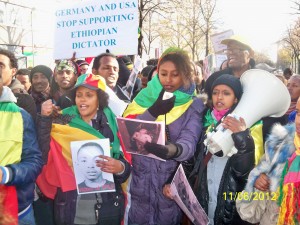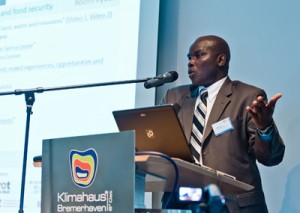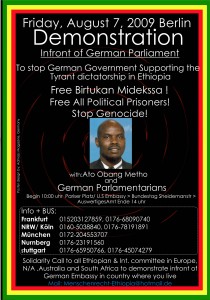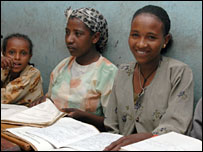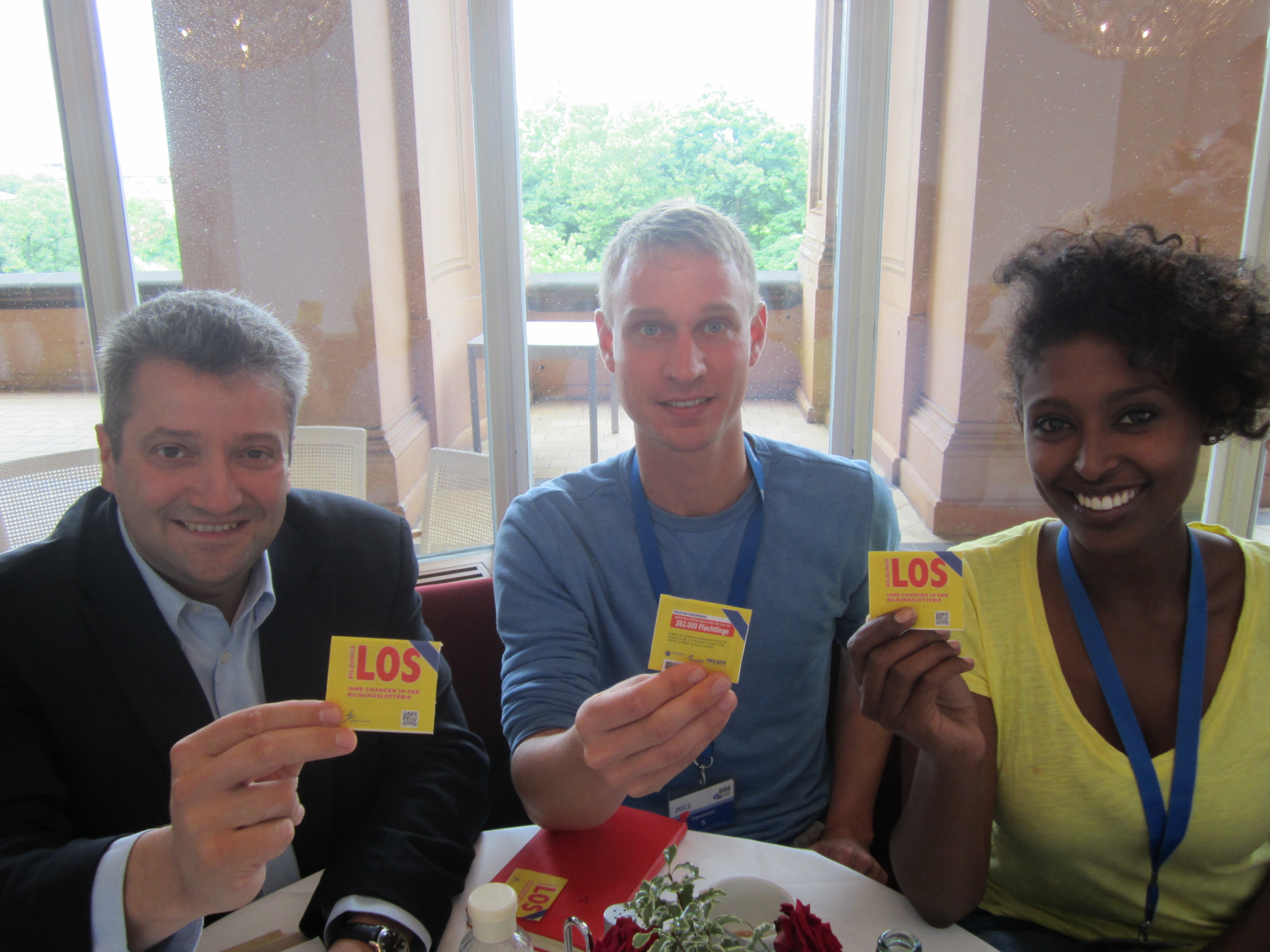Mass Ethiopian people have demonstrated against religious discrimination,human right vilotion ,restriction on the press and so on have taken place in Germany:Berlin November 6th,2012.
Almost 200 hundred people took part in these demonstration and i can say it was successful one .
Ethiopian refugees here in Germany and also some patriot Ethiopians took part in these great big protest against the current government of Ethiopian. the protest have started at 11:30 in Berlin from Alexander palatz and moved on until the main train station. on the way the Ethiopians have called for justice and freedom in Ethiopia.
These event took place after the German political party SPD have called and talked to an Ethiopian politician sebat nega that belong to the current Ethiopian political party. we the refugees in Germany stand against any kind of support that is made to the current Ethiopian government. we want to bring an awareness about the political crises that is going on in Ethiopia,even though the Ethiopian government have tried to hide its true colors from the world but it cant fool us and most of it cant fool the Ethiopians that is experiencing his cruelty first hand ,we the people that is forced out of our countries know the true side of the political system that is built on sand.
we wont sleep until the world knows the truth about about the political scam that is being orchestrated on the people. Because of these reason we have stood in front of the SPD office in Berlin to show our Resistance. we have shouted for almost an hour in front of the office and a letter from us have been passed to the SPD political official. they have agreed to read it and give there response in a short period of time.
The same ritual have taken place in front of the Bundestag and also the councils office,frau angela markel.
The Ethiopians demonstrators have made it loud and clear that
.journalism is not an act terrorism
.religion freedom movement is not terrorism
And have demanded;
.freedom for Ethiopia
.German stop supporting the Ethiopian undemocratic government
.Stop land garbing in Ethiopia
.free all political prisoners,
.we wont a president that is elected by the people for the people and so on.
It was such an organized protest and i hope something good can come out of it
even though the protesters have come from diffident part of Germany,the were so fit through the whole march.
All of the protesters were on the way to Berlin starting 3:00 in the morning ,and were sitting in a bus for more than 5 hours to get to Berlin. the protest and the march were almost the whole day in the street of Berlin,and then with the same bus that brought them there the protesters have boarded on it once again and began they way back to there cities,that means anther 5 to 6 hours. these clearly shows the determination of the Ethiopian people and their resistance to the Ethiopian government.
The demonstration was called by Ethiopian Democracy and unity force in Germany(EPCOU)……..
what goes on in our country affect us as it affect our brothers and sisters that still live there,and when and only when we work together as one then we can achieve to trow away the government that is so cruel to its own people and that is polluting the religious,political and ethic tolerance in Ethiopia. we are all Ethiopian and most of all human being ,and because of that we want freedom and peace………and we wont rest until we achieve that.
